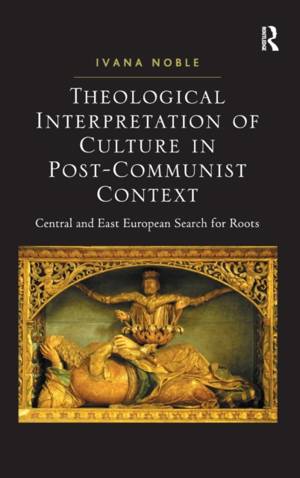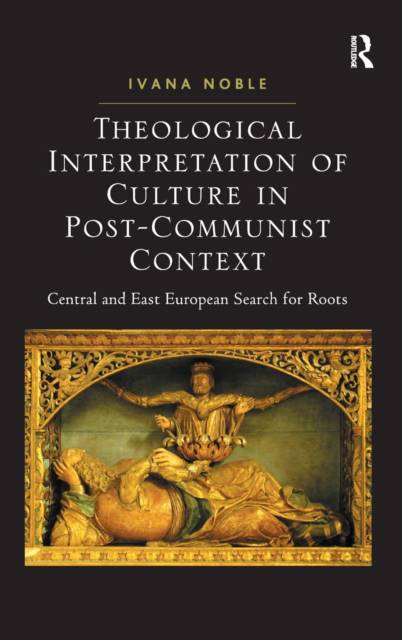
- Afhalen na 1 uur in een winkel met voorraad
- Gratis thuislevering in België vanaf € 30
- Ruim aanbod met 7 miljoen producten
- Afhalen na 1 uur in een winkel met voorraad
- Gratis thuislevering in België vanaf € 30
- Ruim aanbod met 7 miljoen producten
Zoeken
Theological Interpretation of Culture in Post-Communist Context
Central and East European Search for Roots
Ivana Noble
Hardcover | Engels
€ 305,45
+ 610 punten
Uitvoering
Omschrijving
Twenty years after the fall of Communism in Central and East Europe is an ocassion to reevaluate the cultural and theological contribution from that region to the secularization - post-secularization debate. Czech theologian Ivana Noble develops a Trinitarian theology through a close dialogue with literature, music and film, which formed not only alternatives to totalitarian ideologies, but also followed the loss and reappeareance of belief in God. Noble explains that, by listening to the artists, the churches and theologians can deal with questions about the nature of the world, memory and ultimate fulfilment in a more nuanced way. Then, as partakers in the search undertaken by their secular and post-secular contemporaries, theologians can penetrate a new depth of meaning, sending out shoots from the stump of Christian symbolism. Drawing on the rich cultures of Central and East Europe and both Western and Eastern theological traditions, this book presents a theological reading of contemporary culture which is important not just for post-Communist countries but for all who are engaged in the debate on the boundaries between theology, politics and arts.
Specificaties
Betrokkenen
- Auteur(s):
- Uitgeverij:
Inhoud
- Aantal bladzijden:
- 242
- Taal:
- Engels
Eigenschappen
- Productcode (EAN):
- 9781409400073
- Verschijningsdatum:
- 28/04/2011
- Uitvoering:
- Hardcover
- Formaat:
- Genaaid
- Afmetingen:
- 156 mm x 234 mm
- Gewicht:
- 517 g

Alleen bij Standaard Boekhandel
+ 610 punten op je klantenkaart van Standaard Boekhandel
Beoordelingen
We publiceren alleen reviews die voldoen aan de voorwaarden voor reviews. Bekijk onze voorwaarden voor reviews.








